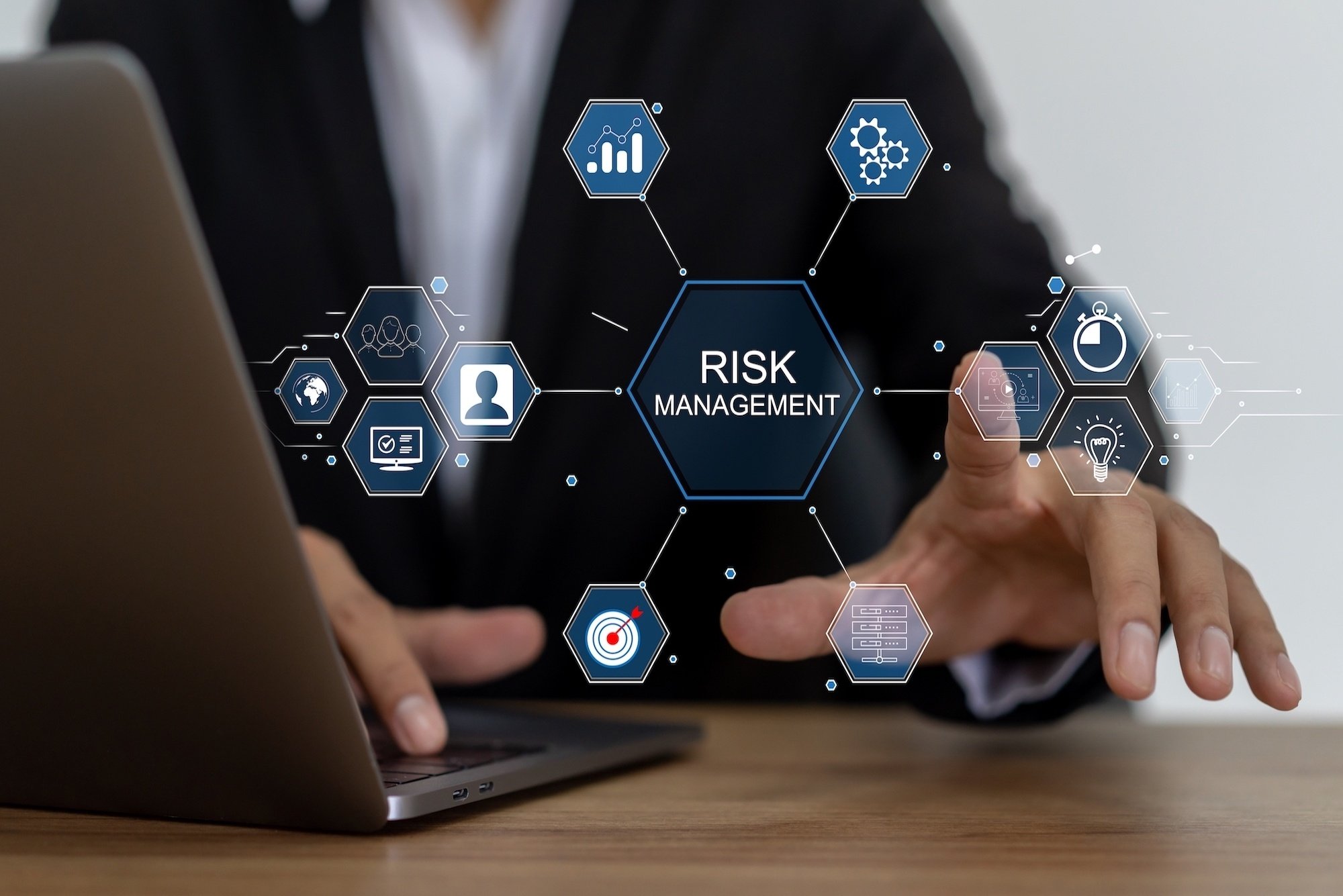Expertise
Discover our expertise and services.
Expertise and Services
We believe that procurement consulting and the optimisation of your purchasing and supply chain processes does not end after the analysis and design phase, but only begins. In our holistic consulting approach, the analysis phase and the insights gained from it form the basis for achieving process and organisational improvements as well as measurable and profitable cost savings for your company.
As part of a jointly developed implementation concept, clear objectives, a detailed approach and packages of measures are defined and then implemented step by step. Necessary adjustments to organisational models are made gradually as part of the continuous improvement of processes and procedures.
We also work with you to set the course for long-term quality improvements, ensuring the sustainability of the project's success. In this way, we help you to significantly increase your competitiveness.
-
Digitalisation in procurement
The digitalisation of procurement faces significant challenges as organisations adapt to the rapid pace of change in global markets.
Increasing uncertainty in supply chains requires proactive digital monitoring to identify and respond to disruptions. -
Purchasing optimisation
We analyse and optimise your purchasing strategy using a comprehensive, holistic and sustainable methodology.
This involves optimising and improving purchasing processes, purchasing organisation, purchasing methodology and purchasing tools. -
Supply Chain Management
Rapidly changing conditions and the increasing complexity of the entire supply chain make supply chain management an increasingly important task.
Many companies already have a very transparent view of their production processes. However, as soon as external partners are involved in the supply chain, transparency is often quickly lost. -
Risk Management
Shortages of raw materials and unforeseen bottlenecks along the entire value chain, from purchasing to logistics, can have serious consequences for your company.
In such cases, not only your own ability to deliver is jeopardised, but also that of your customers. We help you to reduce these risks with a structured and sustainable approach. -
Interim Management
Interim management refers to the temporary assumption of management positions or specific management tasks by experienced professionals.
Interim managers are usually hired to address specific challenges, fill gaps or manage change. -
Purchasing Transformation
Procurement transformation is a significant process that goes far beyond the traditional role of procurement.
It involves redesigning and modernising the procurement function to make it more effective, sustainable and strategic. We can help you with this process.
Digitalisation in Procurement
Digitalisation in procurement faces considerable challenges as companies have to adapt to the rapid changes in global markets. The increasing uncertainty in supply chains requires proactive, digital monitoring in order to recognise and respond to disruptions at an early stage. At the same time, sustainability is becoming increasingly important, putting pressure on companies to design digital solutions that are not only efficient but also environmentally responsible.
However, a key problem is that many companies are struggling to implement their digitalisation strategies effectively. Purchasing processes are often complex and need to be smoothly linked with new technologies.
Implementation errors often result from insufficient consideration of important factors such as data management, the integration of system interfaces and coordination between different departments. A successful digital transformation in procurement therefore requires a holistic approach in which technological, organisational and strategic goals are closely aligned.

E-procurement systems
Digital platforms offer comprehensive functions for managing the entire procurement process, from ordering to invoice verification.
Cloud-based procurement systems offer scalability and enable access to data and applications from anywhere.
Cloud solutions promote collaboration between procurement departments, suppliers and other stakeholders.
Order Systems enable the automated creation and management of purchase orders based on predefined rules and approval processes.
Business Intelligence
By applying data analytics to the procurement process, organisations can achieve significant improvements in decision making and efficiency. Procurement data provides valuable insights that enable organisations to optimise processes, mitigate risk and identify cost savings.
Using data analytics, organisations can analyse procurement data to make better decisions and identify cost savings.
Real-time dashboards and detailed reports help to keep track of purchasing activities, supplier performance and budgets.
Artificial intelligence
Artificial intelligence (AI) and machine learning (ML) are closely related technologies that enable computers to learn from data and make decisions and solve tasks autonomously that would traditionally require human intelligence.
Artificial intelligence can be used to predict future needs and adapt purchasing accordingly.
Artificial intelligence-supported systems can automate recurring tasks such as data processing or invoice verification.
System Integration
Integration of procurement systems with ERP systems ensures smooth data exchange and improves overall efficiency.
Linking to payment platforms enables seamless processing of transactions.
Digital platforms enable better communication and collaboration with suppliers, including contract management and performance evaluation.
Purchasing optimisation
We analyze and optimize your purchasing strategy using a comprehensive, holistic and sustainable methodology. In conjunction with this, the areas of purchasing processes, purchasing organisation, purchasing methodology and purchasing tools are optimised and improved.
This leads to a purchasing strategy that makes your purchasing department more efficient. As a result, your company will realize sustainable and recurring cost savings. This approach is initially characterised by a comprehensive analysis phase. The insights gained are then discussed with the relevant specialist departments and recorded by means of joint, pragmatic optimisation approaches.
As part of the implementation phase, these optimisation measures are then gradually implemented in a sustainable and profitable manner according to a previously defined implementation plan.

Purchasing processes
The purchasing process, especially in the context of digital procurement, comprises various steps aimed at procuring goods and services efficiently and cost-effectively.
Competitive advantages can be achieved through an efficient and professionalised procurement organisation, and we have our clear ideas on this.
In this way, your requirements in terms of flexibility and reliability are systematically anchored in your future-proof supply network.
Purchasing conditions
In order to achieve sustainable savings, the right levers must be pulled. This requires transparency, expertise and implementation strength. Benefit from our experience from numerous initiatives.
Purchasing has one of the greatest direct influences on a company's results. However, the challenge often lies not in recognising potential savings, but in implementing them sustainably.
With the purchasing initiatives we manage, we ensure that existing cost potentials are fully realised in an accelerated manner. We achieve real, P&L-effective results for you.
Purchasing organisation
Transparent and effective structures and responsibilities are fundamental success factors for an effective purchasing department.
This is especially true when several locations and/or companies are striving for joint, optimised purchasing.
JRL Management Consulting provides support with centralisation, decentralisation or hybrid organisational forms, the establishment of purchasing units and all other organisational challenges
Purchasing controlling
Many organisations lack sufficient transparency of their purchasing processes and therefore their expenditure.
However, only a transparent purchasing organisation can set corporate goals and check their realisation.
The organisation can learn from the reasons for deviations, potential for optimisation can be exploited and a basis for decision-making can be derived for corporate management.
Supply Chain Management
Rapidly changing framework conditions and the increasing complexity of the entire supply chain make supply chain management an increasingly important task.
Many companies already have a very transparent view of their production processes. However, as soon as external partners are involved in the supply chain, transparency is often quickly lost.
JRL Management Consulting have a worldwide network, which makes us a unique partner for a future-orientated alignment of your supply chain.

Supply Chain Strategy
The ever-increasing importance of integrating new markets into the logistics value chain increases the need for supply chain models to be continuously adapted. This not only serves to increase competitiveness, but also to ensure that stabilising supply chains pose little or no risk.
In addition, companies must manage shortened product life cycles, rising expectations of product availability, increasing transport costs and volatile customer demand.
The task and goal of a supply chain strategy is to define a value creation system that delivers the right products and services in the right quantity and quality at the right time to customers worldwide in the long term, while keeping costs as low as possible.
Supply Chain Processes
Together with our customers, we optimise all processes. Our focus is always on an effective business process and a sustainably optimised flow of goods. Faster processes lead to a holistically improved company performance.
It is essential that the flow of information is stringently controlled, from purchasing, production and distribution through to integrated supply chain management. On-time customer deliveries, taking into account the overall cost structure, are strongly influenced by the operational process.
Planning and control parameters are of immense importance for both suppliers and customers. This requires optimally functioning IT systems and the best possible IT support.
Supply Chain Controlling
Companies often lack the necessary transparency to manage processes and workflows stringently and optimally. Time and again, we find that certain parts of the supply chain are not viewed holistically. As a rule, this leads to no or only limited overarching control elements being implemented in the supply chain.
In most cases, this means that performance is not strictly measured using KPIs. In most cases, this leads to a lack of a holistic overview of the entire value chain in the supply chain.
However, continuous monitoring of the entire supply chain must be the long-term goal. In this regard, it is crucial that the upstream and downstream areas are also considered. This forms the decisive basis for the optimisation of purchasing, production and logistics processes. Using either a balanced scorecard or a management cockpit, problems and weak points can be recognised at an early stage and effective countermeasures can be initiated.
Net Working Capital
The optimisation of net working capital is playing an increasingly important role in purchasing and supply chain projects. Improved working capital leads to greater liquidity and profitability in your company.
Net working capital improvement projects not only analyse financial flows but also scrutinise and optimise fundamental control measures.
The aim of improved working capital is to reduce net current assets and thus create more liquidity. This enables you to make investments in order to sustainably increase your competitiveness in the long term.
Furthermore, working capital optimisation must not only achieve short-term improvements, but also optimise processes and workflows on a long-term and sustainable basis.
Risk Management
In recent years, changes in global procurement and sales markets and cost pressures on supply chain management have meant that companies have often had to accept losses through no fault of their own. Unexpected events, supplier cancellations or large fluctuations in demand can throw even the best planners off track.
As a result, many companies have realised that systematic management of such supply chain disruptions can bring long-term benefits. With professional risk management, companies can improve their business results, stabilise their supply chains, optimise quality and strengthen their overall competitiveness.
Numerous studies show that purchasing is called upon to take action. Successful companies recognise the contribution that purchasing risk management can make to their competitiveness. In fact, the importance of risk management has increased significantly in recent years.

Identify Risks
The first step is to define a risk strategy that determines how risks are to be dealt with. Risk management planning must therefore include objectives, budgets and schedules, structural processes and the relationship between potential opportunities and risks.
The next step is to recognise and specify the risks (e.g. financial or personnel risks) and to identify the causes and initial signs of risks. This risk identification forms the basis for further risk management.
Risk Analysis
The recognised risks must then be subjected to a comprehensive risk analysis in order to be able to make statements about the outcome. In the qualitative risk analysis, the risks are first assessed in terms of their probability of occurrence and potential impact and prioritised (e.g. low, medium, high risk).
With the help of a quantitative risk analysis, the qualitative results can then be quantified (e.g. estimated values for expected losses).
Plan, implement and monitor measures
This data can then be used to plan and develop risk management measures (e.g. fallback scenarios, alternative procedures).
Finally, the monitoring and control of risks serves to observe the identified risks, recognise any new risks at an early stage and initiate appropriate management measures in good time.
However, risk controlling also includes assessing the overall progress to date and developing a new risk strategy if necessary.
Sustainability
Sustainability plays an important role in the supplier management of many companies. In accordance with their mission statement and guidelines, these companies do not only base their procurement decisions on economic, technical and procedural criteria. They also attach great importance to social and ecological aspects, including the protection of human rights, the fight against corruption and environmental protection. We help you to control your supplier management centrally and to develop your purchasing and supply chain organisation sustainably.
Interim Management
Interim management refers to the temporary assumption of management positions or specific management tasks by experienced professionals. Interim managers are usually hired to overcome specific challenges, fill gaps or manage transformations. The interim managers at JRL Management Consulting have already mastered many entrepreneurial challenges in their careers to date and achieved above-average results.

Professionel Interim Management
Interim management describes the temporary deployment of highly qualified managers who support companies in taking on important management tasks.
Interim managers are often deployed when an experienced manager is needed at short notice, whether to bridge a vacancy, manage specific projects or intervene quickly and effectively in crisis situations.
Interim managers support the implementation of corporate changes such as restructuring or mergers. Interim managers can be used to manage and implement special projects that require expertise or experience that is not available internally.
Advantages of Interim Management
Interim managers often bring specific industry knowledge and extensive experience in certain areas. They offer an objective perspective and fresh ideas without being influenced by internal company dynamics.
Interim managers can often be deployed quickly to take on urgent tasks. They work for a fixed period of time or until a specific goal is achieved without making long-term commitments to the organisation.
Interim management can be more cost-effective than hiring a permanent manager, especially for short-term or project-related tasks. For uncertain management needs or temporary challenges, interim management offers a low-risk solution. Interim managers are often strongly results-orientated and focus on achieving specific goals within a set timeframe.
Typical tasks and responsibilities
Interim managers can provide temporary leadership and motivation for teams in order to achieve goals efficiently. They provide support in implementing changes and adapting to new processes or structures.
Interim managers can develop and implement strategies to overcome challenges or achieve growth targets. They help to draw up plans for the future of the company or for specific business units or support the improvement of existing processes and systems to increase efficiency and effectiveness
Selection and engagement of an interim manager
The selection of an interim manager is based on the required qualifications, experience and appropriate expertise. Our interim managers have been scrutinised with regard to their track record and successes. Experience from previous projects and a track record from numerous functions make our interim managers the right partner.
Before the project starts, the duration of the engagement and the exact task description are defined. We ensure support for rapid integration into the company and the team through an efficient on-boarding process.
At the end of the project or assignment, we ensure a smooth handover of the tasks to a permanent manager or the next phase of the project.
Purchasing Transformation
The transformation of procurement is a significant process that goes far beyond the traditional tasks of procurement. It involves redesigning and modernising the procurement function to make it more effective, sustainable and strategic.
Companies must become increasingly aware of their responsibility for the environment and society, and procurement plays a central role in this. The comprehensive transformation of procurement towards greater sustainability and social responsibility is therefore not only a contribution to the fulfilment of legal requirements, but also a strategic necessity for the long-term competitiveness and success of the company.

Sustainable procurement
Purchasing can make a major contribution by selecting suppliers and products that promote environmentally friendly and socially responsible practices.
This means favouring environmentally friendly materials, selecting suppliers with good working conditions and monitoring supply chains to ensure that social standards are met.
Life cycle
Purchasing should not only focus on price, but also on the environmental and social impact of products over their entire life cycle. This includes production, transport, use and disposal.
The comprehensive transformation of procurement towards greater sustainability and social responsibility is therefore not only a contribution to the fulfilment of legal requirements, but also a strategic necessity for the long-term competitiveness and success of the company.
Stakeholders
Working closely with suppliers and other stakeholders can help define common sustainability goals and develop innovative solutions.
This can include sharing best practices and developing new environmentally friendly technologies. Transparent communication about the company's sustainability practices and goals is important.
Procurement should share this information clearly and openly with internal and external stakeholders.
Training and awareness
Employees in purchasing should be regularly trained to develop an awareness of the relevance of environmental and social aspects and to take the relevant criteria into account in procurement.
The development of key figures and regular reporting on progress with regard to environmental and social responsibility help to create transparency and monitor the realisation of objectives.
Contact
